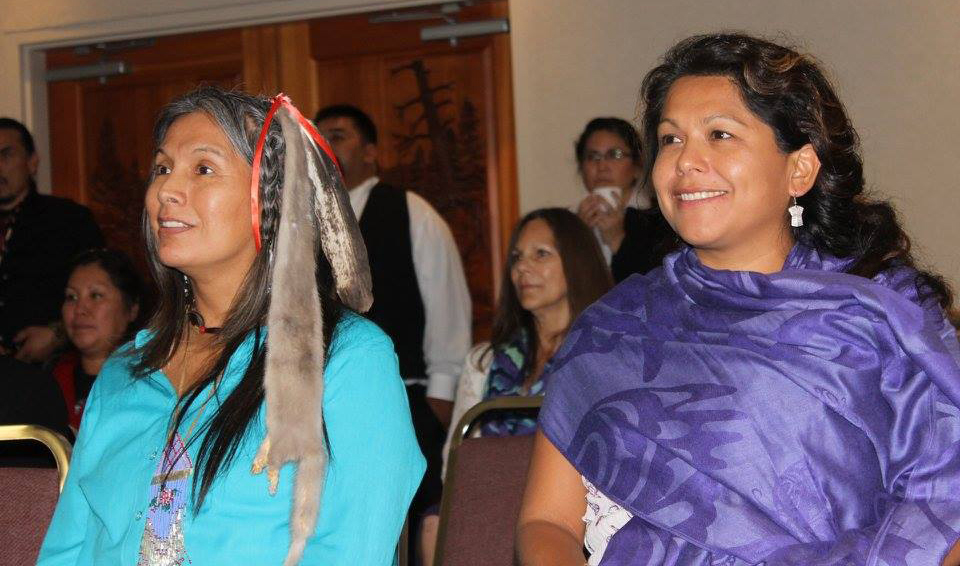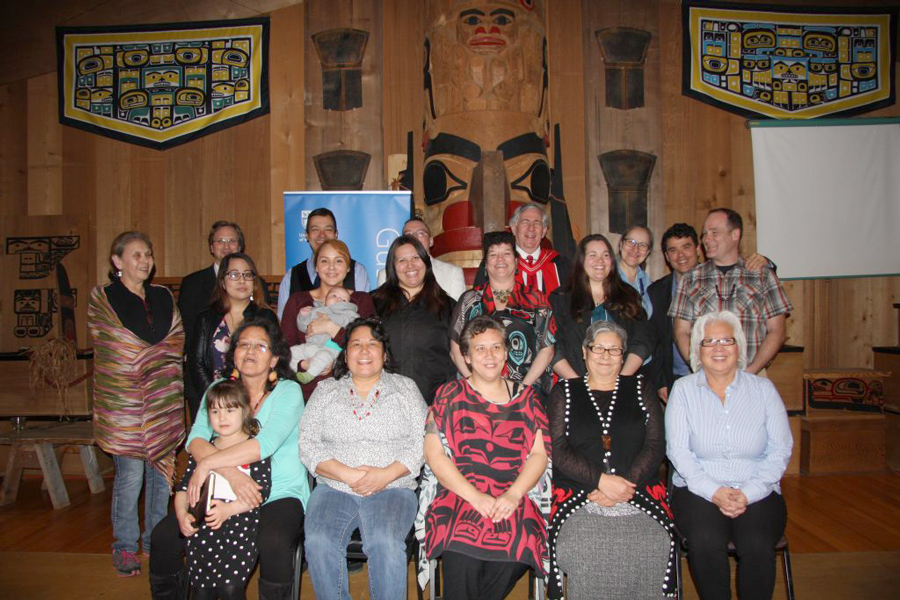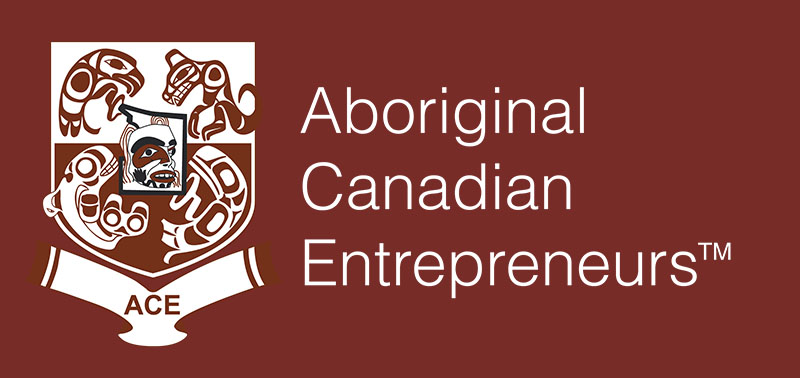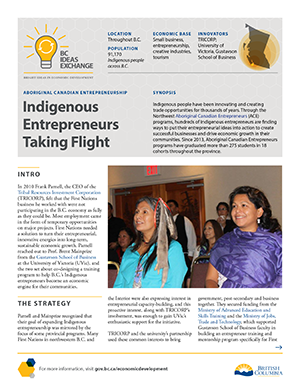Boosting Businesses through the Aboriginal Canadian Entrepreneurship Program
Throughout B.C.

In 2010 Frank Parnell, the CEO of the Tribal Resources Investment Corporation (TRICORP), felt that the First Nations businesses he worked with were not participating in the B.C. economy as fully as they could be. Most employment came in the form of temporary opportunities on major projects. First Nations needed a solution to turn their entrepreneurial, innovative energies into long-term, sustainable economic growth. Parnell reached out to Prof. Brent Mainprize from the Gustavson School of Business at the University of Victoria (UVic), and the two set about co-designing a training program to help B.C.’s Indigenous entrepreneurs become an economic engine for their communities.
The Strategy
Parnell and Mainprize recognized that their goal of expanding Indigenous entrepreneurship was mirrored by the focus of some provincial programs. Many First Nations in northwestern B.C. and the Interior were also expressing interest in entrepreneurial capacity-building, and this proactive interest, along with TRICORP’s involvement, was enough to gain UVic’s enthusiastic support for the initiative.
TRICORP and the university’s partnership used these common interests to bring government, post-secondary and business together. They secured funding from the Ministry of Advanced Education and Skills Training and the Ministry of Jobs, Trade and Technology, which supported Gustavson School of Business faculty in building an entrepreneur training and mentorship program specifically for First Nations in the Northwest. In 2013, the first pilot of the Northwest Aboriginal Canadian Entrepreneurs (NW-ACE) course was delivered in Prince Rupert. The curriculum was designed to be delivered over six months, and had two components: 12 weeks of classroom sessions, followed by 16 weeks of mentorship. The course’s content focused on building participants’ business presentation and technical skills, as well as the confidence and passion surrounding their ideas.
The success of NW-ACE quickly gained recognition, and the Aboriginal Canadian Entrepreneurs program started getting invitations to deliver the curriculum throughout the province. Along with NW-ACE, there are now programs with the Haida Nation (Haida Owned and Operated), the Nisga’a Nation (Nisga’a ACE), and in the Lakes District (LD-ACE). The programs in each of these regions are co-designed with the host communities to help ensure they align with each Nation’s economic development priorities. For example, Nisga’a graduates often focus on the local tourism industry, while most Haida entrepreneurs relate their activities to the Nation-owned Haida Enterprise Corporation (HaiCo). Through the TRICORP-Gustavson partnership, the School of Business still sends faculty and resources around the province for the ACE programs.
Successes

Since its 2013 debut, ACE programs have graduated more than 275 students in 18 cohorts throughout the province. Alumni have already launched 72 businesses, not including those in planning stages.
Many of ACE’s successful graduates make their way in creative industries, like award-winning photography entrepreneur Patrick Shannon. However, the versatility of ACE’s curriculum can be seen in businesses ranging from Iron Eagle’s safety advisers to the Women’s Online Network broadcasting platform to Haida Style Expeditions’ cultural adventures.
The ACE programs’ impact has been recognized by a number of regional, national and international awards. A recent $1 million pledge from the Bank of Montreal for an artisan-focused program on Vancouver Island will help secure ACE’s place as an engine of Indigenous economic activity in B.C.
Lessons Learned and Final Thoughts
- Identify areas where your focus aligns with the priorities of prospective collaborators, and bring them on board.
- Get proactive buy-in from communities and partners who can help deliver on your ideas. This will make your programs more effective, and convince supporters that you are creating real value.
- Look for ways to unleash the capacity and power that exists in a community, by partnering to fill gaps while focusing on the assets and strengths already in place.
- Seek out partners from all over B.C., and beyond. If your case is strong enough, people will be willing to come to you.
- There is no substitute for delivering education face-to-face, in Indigenous territory, on the host community’s terms.

Indigenous Peoples across B.C.
Population: 91,170
Location: Throughout B.C.
Economic Base: Small business, entrepreneurship, creative industries, tourism
Contact:
Brent Mainprize
Gustavson School of Business, UVic
Email: brentm@uvic.ca

